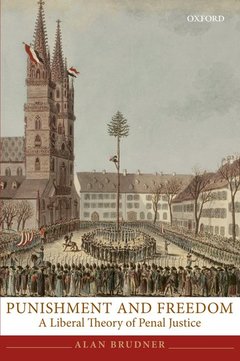Description
Punishment and Freedom
Author: Brudner Alan
Language: English
Subjects for Punishment and Freedom:
Publication date: 02-2012
358 p. · 15.7x23.4 cm · Hardback
358 p. · 15.7x23.4 cm · Hardback
Description
/li>Contents
/li>Biography
/li>
This book sets out a new understanding of the penal law of a liberal legal order. The prevalent view today is that the penal law is best understood from the standpoint of a moral theory concerning when it is fair to blame and censure an individual character for engaging in proscribed conduct. By contrast, this book argues that the penal law is best understood by a political and constitutional theory about when it is permissible for the state to restrain and confine a free agent. The book's thesis is that penal action by public officials is permissible force rather than wrongful violence only if it could be accepted by the agent as being consistent with its freedom. There are, however, different conceptions of freedom, and each informs a theoretical paradigm of penal justice generating distinctive constraints on state coercion. Although this plurality of paradigms creates an appearance of fragmentation and contradiction in the law, the author argues that the penal law forms a complex whole uniting the constraints on punishment flowing from each paradigm.
1. Punishment. 2. Culpable Mind. 3. Culpable Action. 4. Responsibility for Harm. 5. Liability for Public Welfare Offences. 6. Justification. 7. Excuse. 8. Detention After Acquittal. 9. The Unity of the Penal Law. Conclusion. Bibliography. Index.
Alan Brudner is Albert Abel Professor of Law and Professor of Political Science at the University of Toronto. He holds a law degree from the University of Toronto, where he also received bachelor's, master's, and doctoral degrees in Political Science. He has been a Visiting Fellow at Oxford University and a Visiting Professor at the Hebrew University of Jerusalem and Tel Aviv University. He is the author of Constitutional Goods and The Unity of the Common Law: Studies in Hegelian Jurisprudence as well as numerous journal articles on a variety of topics in legal and political theory. He was the editor of the University of Toronto Law Journal from 2000 to 2007.
© 2024 LAVOISIER S.A.S.




